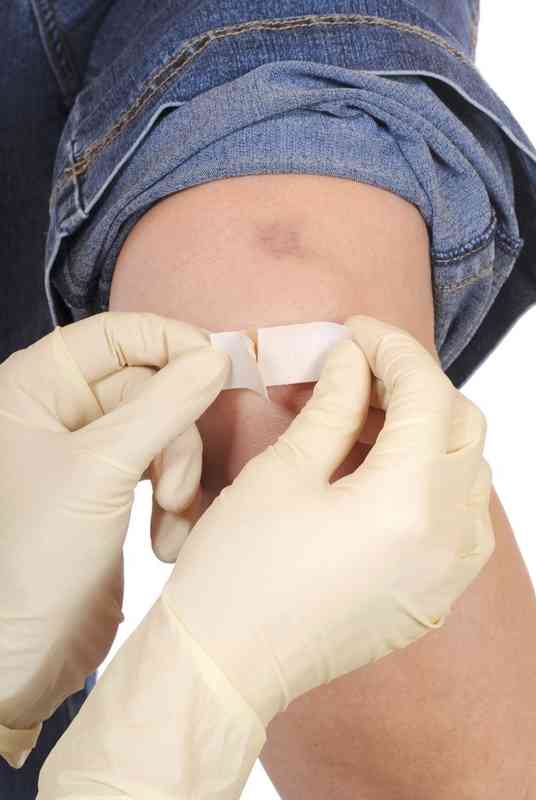Will an Allergy Cause Throat Swelling?

A variety of substances can cause allergic reactions, including food, pollen, dust, latex and animal dander. Symptoms vary, but among the most common are swollen and inflamed mucus membranes, including membranes in the throat. Swelling in the throat from an allergic reaction can vary in severity from mild to life-threatening.

Allergic Reaction
An allergic reaction occurs when the body's immune system misidentifies a harmless substance such as food or plant pollen. The immune system responds to the substance, called an allergen, as if it were a pathogen. Histamine levels in the blood rise, initiating a series of reactions intended to flush the substance from the system and prevent any more from entering. Allergic reaction symptoms can take many forms, but the most common include skin irritation and swelling of the mucus membranes.
Throat Swelling
Swelling of the throat is particularly common in the case of food allergies, where the throat may have come into contact with the allergen. The lips and tongue may also become swollen. Sufferers may find it difficult to swallow or may find themselves wheezing when they breathe. Although they may be painful or frightening, many such reactions are harmless, subsiding in a short time. However, not all allergic reactions are superficial. Some can be dangerous.
Anaphylaxis
Anaphylaxis, also known as anaphylactic shock, is a severe form of allergic reaction. Symptoms of anaphylaxis include severe swelling of the nose and throat, as well as skin flushing, rashes, an elevated heart rate, nausea and vomiting. Not all anaphylaxis sufferers display all of these symptoms. Anaphylaxis can cause death if the heart stops or the throat becomes so swollen that the victim's airway is obstructed, causing suffocation. Some anaphylaxis victims may also go into respiratory arrest.
Treatment
Both mild and severe allergic reactions can be treated. In the case of a mild reaction, antihistamines can lower the level of histamine in the blood, reducing the swelling. Anaphylaxis is a medical emergency, requiring immediate treatment. Some individuals known to be prone to anaphylaxis may carry auto-injectors of epinephrine. Administering epinephrine can relieve the symptoms of anaphylaxis, but the sufferer should still seek immediate medical attention. Individuals with food allergies, whether mild or severe, can also manage the risk of an allergic reaction by avoiding contact with the allergen.




